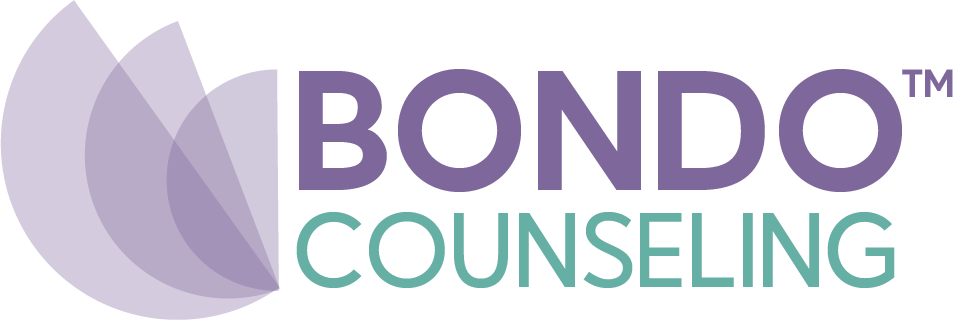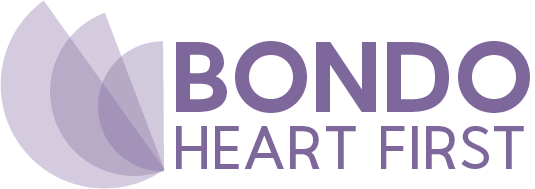
Carole Anne Cantey
M.Ed. Licensed Professional Counselor
I meet clients as a counselor, a coach, or an integration of both. Let’s discuss.
BONDO describes our capacity to form heart-to-heart relationships in the moment and over time. When we follow the thread in a connection, doors open that can change our lives, and change the world.
BONDO reflects the creative side of being in relationships. Reaching out, taking risks, being curious, following through, holding someone in your thoughts, and sharing your life to build something bigger — a constellation of connections that become a home for your heart.
Learning to lean heart first expands your world. It allows you to be a better person and creates an opportunity for others to respond in kind.
A poet friend of mine said, “Whatever takes you to the Well, follow that thread.” BONDO is that thread. It’s invisible until you summon it and invite it into your encounters with others.
We bring our stories to a therapeutic or a coaching relationship, but the healing takes place in the present. Let’s practice that presence together to allow us to heal.

Our work together
Anxiety, stress, depression, and residual trauma stand in the way of an open-hearted life. Rather than dwelling on one’s story, we will create an authentic connection – what I call Bondo – to release these obstacles in the healing light of the present moment.
By practicing Bondo together, we will build a go-to place of emotional strength and heartfelt connection to face the world and thrive from being with others.
By changing the narrative from struggle to connection, every human interaction can become a source of nurture, growth, and fulfillment.
My story
Since my earliest days in college, I have been fascinated by the great thinkers, philosophers, and psychological states. I followed a profound curiosity into what makes us tick.
Not surprisingly, my family dynamics drew me to explore my growing edges and yearning for inner freedom. My psychology career began as an alcohol/drug counselor in Alabama. Working with addicts was challenging, but also offered a hands-on sense of the crippling effect of unresolved trauma.
I became a trauma specialist, first as an outpatient therapist and group counselor and, later, providing counseling at the Women’s Resource Center at the University of Alabama. I learned how to advocate for my clients’ issues – legal, medical, academic, housing, and more. I even trained women in self-defense.
The world-renowned addiction expert, Dr. Gabor Maté explained:
“If you can become aware of early trauma, you can gain agency so that illnesses need not determine your fate.”
The role of agency became profoundly important in my life, so much so, I became a Law Enforcement Officer for the University of Alabama. I responded to emergencies, pulled people over, intervened in violent settings, and testified in court. I gained agency as a person and more street-savvy to help my clients.
For over a decade, I worked with the University of South Carolina Aiken as a counselor, advisor, ALC/drug programmer. Later at USC Columbia, I worked as a lead advocate for students, staff, and faculty survivors of interpersonal violence.
My expertise includes personal growth and development, anxiety, trauma, relationship issues, depression, grief and loss, and life transitions.
This is a shorthand look at my resume but taken together, it paints a picture of the lived experience I bring to psychotherapy. It explains why, in addition to the theories and modalities, I find that a safe, therapeutic space supports accelerated growth and healing through deep connection and recognition.
I am calling this BONDO.

Frequently asked questions
Do you take insurance?
I am not taking insurance at this time. I may reconsider at a later date.
What are the ways to pay?
I accept cash, checks, Venmo, and Zelle at this time.
Do you work with couples?
Yes, I have years of experience working with couples. I am not a certified couples counselor.
How do we meet?
We can meet in person in Columbia, SC or phone, or Zoom.
How do I get started?
We will get to know each other and your interest in counseling through a short phone call. There is no obligation.
After that, you are requested to fill out the forms. Either print, sign, scan, and email, or bring with you to the first session.
Bondo seems focused on relationships. What if my issue is something else?
Bondo describes the nature of our therapeutic relationship. Within a safe, secure space, we will to establish a deep, supportive connection and opportunity for growth.
I'm excited about Bondo. What books can I read?
- Daring Greatly: How the Courage to Be Vulnerable Transforms the Way We Live, Love, Parent, and Lead by Brené Brown
-
Neighborliness by David Docusen offers a thoughtful look at how to build relationships, especially when things feel divided. A gentle, yet productive look at things like race, bias, and building community, Neighborliness offers practical help for deep, lasting relationships.

Find Your People by Jennie Allen helps you connect with people the way your souls long for. From practical things like where you live and how to make friends to deeper conversations about intimacy, Find Your People is a great way to grow in every relationship.

Backroads to Belonging by Kristen Strong gives readers that feel on the outside hope for connection. When you remain in Christ you are free to welcome others into authentic connection.

The Turquoise Table by Kristin Schell is a beautiful story of a simple act of welcome that grew into something beautiful. You can find connection, and it might be right in your front yard.

Never Unfriended by Lisa-Jo Baker takes you from a place of loneliness and isolation to hope that you can find friendship and help it grow into a deep, lasting relationship. Never Unfriended is full of stories and practical tips to develop the relationships you long for.
Forms
Information, Authorization, & Consent to Treatment Form
Overview of my professional background, our therapeutic work, cost, and confidentiality. To be signed.
Health Insurance Portability and Accountability Act (HIPAA)
Describes the ways medical information may be used and disclosed and how to get access to the information.

